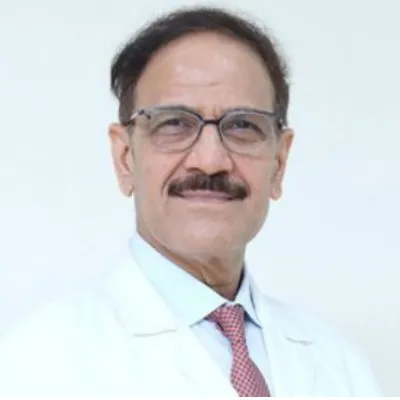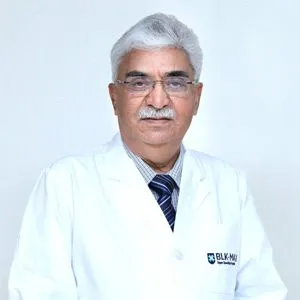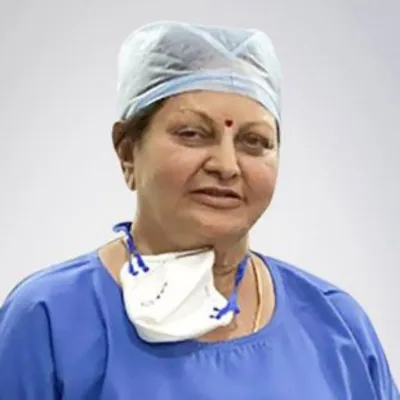Best Cardiologists in Artemis Hospital Gurgaon
 10 December,2025
Read More
10 December,2025
Read More
Starting From: USD 6000-38000
Procedure Type: Surgical Procedure
Hospitalization Days: 5-12 Days
Procedure Duration: 2-4 Hrs
Recovery Time: 12-16 Weeks
Success Rate: 97%
Heart valve replacement cost in India ranges from USD 6,000 to USD 38,000, making it a significantly more affordable option than in many Western countries. The total expense depends on the valve type, surgical approach, hospital tier, and patient condition. This cost typically includes surgery, hospital stay, anesthesia, and post-operative care, providing patients with expert treatment at globally accredited hospitals without compromising on quality or safety.
Valve Replacement Surgery is a vital cardiac procedure designed to address one or more malfunctioning heart valves. The procedure is commonly sought due to the Heart Valve Replacement cost in India, which offers a more affordable option compared to many other countries.
The heart contains four valves—mitral, aortic, tricuspid, and pulmonary—each responsible for maintaining proper blood circulation. If these valves become narrowed (a condition called stenosis) or fail to close properly (known as regurgitation), they impair blood flow and force the heart to work harder. Over time, this added strain may lead to serious complications, including heart failure, if not addressed.
During the procedure, the damaged valve is replaced with either a mechanical valve, crafted from durable synthetic materials, or a biological valve, sourced from human or animal tissue.
Surgeons generally consider two main approaches:
While aortic and mitral valve issues are the most common reasons for this surgery, advancements now enable treatment for tricuspid and pulmonary valve disorders as well.
Valve Replacement is recommended when a heart valve is too damaged to function properly, putting your heart at risk. You may need surgery if you have:
Always consult a cardiologist to determine if valve replacement is right for you.
The Valve Replacement cost in India can broadly be categorized into the following approximate ranges:
These estimates typically include hospital charges, surgeon fees, OT charges, anaesthesia, standard medications, and post-operative monitoring.
Several factors can influence the cost of Heart Valve Replacement Surgery in India, making it higher or lower. The main factors include:
Here is an overview of valve replacement surgery costs in 10 major Indian cities. USD equivalents are approximate and subject to currency fluctuations.
|
City |
Min Cost (INR) |
Max Cost (INR) |
Min Cost (USD) |
Max Cost (USD) |
|
New Delhi |
INR 3,25,000 |
INR 5,25,000 |
USD 3,900 |
USD 6,300 |
|
Mumbai |
INR 2,30,000 |
INR 6,00,000 |
USD 2,760 |
USD 7,200 |
|
Bengaluru |
INR 2,50,000 |
INR 6,00,000 |
USD 3,000 |
USD 7,200 |
|
Chennai |
INR 1,30,000 |
INR 6,00,000 |
USD 1,560 |
USD 7,200 |
|
Hyderabad |
INR 2,40,000 |
INR 5,00,000 |
USD 2,880 |
USD 6,000 |
|
Kolkata |
INR 1,30,000 |
INR 4,00,000 |
USD 1,560 |
USD 4,800 |
|
Pune |
INR 2,50,000 |
INR 9,00,000 |
USD 3,000 |
USD 10,800 |
|
Ahmedabad |
INR 1,30,000 |
INR 5,25,000 |
USD 1,560 |
USD 6,300 |
|
Chandigarh |
INR 1,75,000 |
INR 5,00,000 |
USD 2,100 |
USD 6,000 |
|
Gurugram |
INR 1,50,000 |
INR 4,50,000 |
USD 1,800 |
USD 5,400 |
Major metropolitan hubs typically offer a broader spectrum of costs, influenced by premium facilities or internationally accredited hospitals. However, Tier-2 cities may provide consistently affordable rates without compromising care standards, thanks to streamlined operations and lower overhead. For accurate cost estimates, it’s always best to consult a healthcare provider.
Patients seeking care abroad frequently evaluate various destinations to find the optimal balance of affordability and quality of care. Here’s an overview of key considerations across common destinations:
|
Country |
Approx. Cost (USD) |
|
India |
USD 6,000 – USD 38,000 |
|
USA |
USD 50,000 – USD 2,00,000 |
|
UK |
USD 20,000 – USD 50,000 |
|
UAE |
USD 27,523 – USD 39,388 |
|
Turkey |
USD 8,000 – USD 20,000 |
|
Thailand |
USD 9,900 – USD 13,000 |
India’s cost advantage and internationally trained surgeons make it a top destination for complex heart procedures, such as valve replacement.
Consultations and Diagnostic Tests:
For affordable Heart Valve Surgery in India, many Indian hospitals work with domestic and international insurance providers. Confirm with your insurer whether the Heart Valve Replacement Surgery package in India, which includes surgery, hospitalization, medications, and follow-up care, is covered.
Uninsured patients can consider alternative payment routes. Hospitals often offer customized payment schedules or financing options to help ease the costs. Medical loans are also available. For specific advice, discuss payment strategies directly with the hospital’s financial team.
Seeking low-cost Heart Valve Replacement Surgery in India? These strategies can help balance cost and quality:
Heart Valve Replacement cost in India offers a compassionate solution that prioritizes both exceptional care and financial accessibility. With MediJourney as your trusted partner, you gain access to advanced cardiac treatments at globally accredited hospitals, guided by skilled surgeons, while saving up to 60% compared to Western nations. We alleviate the stress of logistics, accommodations, and visa processes, allowing you to focus entirely on your health and recovery.
Our commitment is to provide unwavering support so you and your loved ones can concentrate on healing while we manage every detail with precision. By choosing MediJourney, you secure not only premium cardiac care but also a personalized journey tailored to your needs. From seamless visa coordination and comfortable lodging to language assistance, we prioritize your comfort and peace of mind. To us, you are more than a patient—you are family, deserving of dignity and dedicated attention.
Let MediJourney guide you toward world-class cardiac care in India, where expertise meets empathy. Contact us today to confidently plan your valve replacement surgery, knowing every step is designed with your well-being in mind.
Answer: The cost of Heart Valve Replacement in India typically ranges from approximately USD 6,000 to USD 38,000, depending on factors like the type of valve used, surgical approach, hospital location, and the patient's health condition.
On average, Heart Valve Replacement Surgery costs around INR 3,70,000 to INR 4,50,000 (approximately USD 4,500 to USD 5,500). This estimate includes hospital charges, surgeon's fees, anesthesia, and postoperative care.
Several factors influence the overall cost of Heart Valve Replacement in India:
Yes, several financing options are available for Heart Valve Replacement in India:

Chairman
Interventional Cardiologist
BLK-Max Super Speciality Hospital, New Delhi

Director
Cardiologist, Interventional Cardiologist
Max Super Speciality Hospital, Saket, New Delhi

Chairman
Cardiac Electrophysiologist, Interventional Cardiologist
BLK-Max Super Speciality Hospital, New Delhi

Consultant
Interventional Cardiologist
Indraprastha Apollo Hospital, New Delhi

Head of Department (HOD)
Cardiologist
Nanavati Super Specialty Hospital, Mumbai

Consultant
Interventional Cardiologist
Apollo Hospital Chennai, Greams Road
Doctor of Pharmacy
Dr. Deepanshu Siwach is a skilled clinical pharmacist with a Doctor of Pharmacy degree.?He has 4+?years of experience and has worked with thousands of patients. He has been associated with some of the top hospitals, such as Artemis Gurgaon.
Dr. Deepanshu Siwach is a skilled clinical pharmacist with a Doctor of Pharmacy degree.?He has 4+?years of experience and has worked with thousands of patients. He has been associated with some of the top hospitals, such as Artemis Gurgaon....
Chairman
Cardiac Electrophysiologist, Interventional Cardiologist
Dr. T.S. Kler, a Padma Bhushan awardee and the Chairman of Fortis Heart & Vascular Institute, transformed the field of electrophysiology in India through over 35,000 angioplasties and innovative device implants. After earning the MRCP (UK) in 1989, he launched India's first electrophysiology lab at Escorts Heart Institute in 1993, where he conducted the country's first ICD implant in 1995 and the first CRT-D implant in 2000. His introduction of HIS bundle pacing in 2015 resulted in a 30% improvement in cardiac synchronization outcomes. He is one of the leading doctors in Gurgaon, India, and he is currently focused on integrating AI-driven models for arrhythmia prediction, analyzing over 10,000 ECGs with a machine learning algorithm....
The Art of Effective Communication
 10 December,2025
Read More
10 December,2025
Read More
 09 December,2025
Read More
09 December,2025
Read More
 05 December,2025
Read More
05 December,2025
Read More
 04 December,2025
Read More
04 December,2025
Read More
 27 November,2025
Read More
27 November,2025
Read More
 25 November,2025
Read More
25 November,2025
Read More